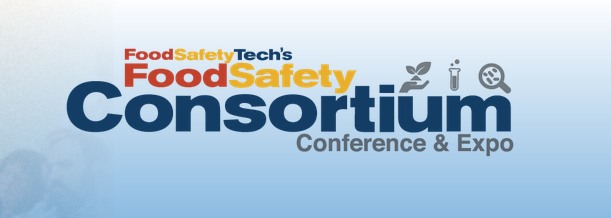For the last two years, we consumers have experienced the global supply chain challenges associated with a variety of items such as lack of home appliances, favorite packaged foods or paper towels. And now the Ukraine war has sparked a new supply chain crisis with projected shortages of chemicals, oilseeds, iron, steel, fertilizers, wood, palladium and nickel. It’s clear that disruptions will continue as the world endures a crippled supply chain.
Most consumers don’t consider how supply chain interruptions affect the production and safety of so many of the foods we eat. Delays in any food ingredient or packaging can disrupt production schedules, delay shipments, and lead to empty retail shelves for thousands of food processors, manufacturers and retailers across the globe.
As manufacturers cope with these challenges, they frequently have to identify new suppliers or change processes and formulas on the fly. These unanticipated changes may often lead to shortcuts that can pose significant risks to consumers and cause food recalls.
It’s often hard to imagine all the interdependencies within the global supply chain, but one missed shipment or unavailable product can produce ripple effects throughout the globe. To reduce the risks associated with supply chain delays, food processors should implement resiliency measures such as effective change management and food safety vendor audit programs, detailed product specification and vendor expectation requirements, and multi-sourced vendor strategies.
To address these issues, this article reviews three ways food manufacturers can continue to minimize delays and reduce food safety risks when the supply chain interrupts production.
Learn more about how to address risks in the supply chain by viewing the Food Safety Tech Hazards Series: Supply Chain | On Demand1. Empower Workers to Report Issues
It’s always important to remember that employees can be the best defense against food safety threats. They’re the ones who interact with the products day-to-day and have the most familiarity with the ingredients. Their expertise is especially important now that supply chain disruptions are introducing new issues and anomalies.
Food manufacturers should train employees to understand which ingredients and products are acceptable and encourage them to speak up when they notice any anomalies. It’s also critical that training instills in workers the idea that they share the responsibility to ensure the safety and quality of the products they produce.
When frontline employees have the authority and the autonomy to alert their supervisors when they see something unusual or unexpected, they can become a powerful weapon in the food safety risk prevention arsenal. Harnessing the eyes of all your employees as your ultimate quality control team will help prevent costly recalls, product rework and further production delays.
2. Review Supplier Specs
When food manufacturers start working with a new supplier, they should take the necessary time to review their detailed product specifications to understand the technical and functional aspects of their product. From nutritional values and potential allergens to ingredients and chemical properties, it’s critical to have a full picture of what goes into the product before incorporating it into your manufacturing process.
As a best practice, manufacturers should also ask for a copy of the supplier’s recent GFSI food safety audits or equivalent and proof of liability insurance.
It’s also critical to thoroughly review vendor product specifications to confirm that a newly sourced ingredient meets your purchase expectations, label requirements, and food safety and quality risk profile. Considering how quickly an interruption can occur, it’s important to establish new vendor expectations and develop a supplier questionnaire. In addition, always plan ahead by sourcing multiple backup suppliers prior to ingredient and packaging disruptions.
3. Examine Supplier Labels
Understanding the product specifications is a critical first step, but it’s equally important to compare the label to the specs to ensure it is compliant and expected.
When a package arrives on the dock, receivers need to know if the contracted product has arrived as specified. Is the product packaged correctly, within expected shelf life, in a sanitary condition? Receivers should answer these and other questions by looking for inconsistencies per pallet like mixed lot codes and product shelf-life variances. Employees should also check the condition of incoming products including noting unusual odors or colors that might not seem right or for packaging that looks different from prior shipments.
The ongoing supply chain disruptions are predicted to continue this year, which means they can potentially cause food safety challenges based on inconsistencies in raw materials and undocumented process changes in production. Food safety leaders must hone their change management skills to successfully lead their organizations through these challenging times.
Adhering to the strict practices detailed in this article might seem like a lot of extra work and attention, but it’s actually something food manufacturers should be doing all the time as part of a mature food safety culture.







